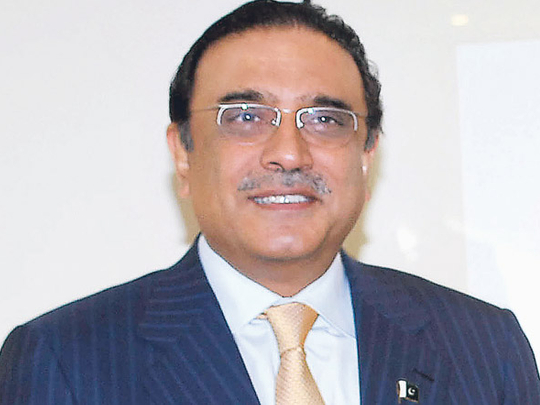
Conspiracies are popular in Pakistan, especially those involving America. When an American, Raymond Davis, was arrested for murder after shooting two people on January 27 in traffic in the city of Lahore, many Pakistanis at once suspected the worst. The more that has leaked out about the case, the more their suspicions have seemed justified, and the more serious the damage to a ‘strategic partnership' vital to both countries. It will be mended — it always is, somehow — but not quickly, and not by Davis's early release.
The two countries have some common ground about what happened. Davis shot two men on a motorcycle who approached his car stuck at a traffic light. Another motorcyclist was accidentally killed by a car rushing to Davis's assistance.
America says Davis is a diplomat, claims immunity for him and demands he be freed at once. It has not identified, let alone surrendered, the driver of the other car. Davis has told police that he acted in self-defence when the men, who he thought were robbers, pulled out guns.
The version Pakistanis have pieced together from press reports, whispers from officials and frenzied chat-show speculation is more exciting. Davis was not on a list of diplomatic personnel in Pakistan submitted by the American embassy to Pakistan's foreign ministry on January 25. In Lahore he had been to lunch with unnamed contacts in a well-known restaurant. He carried a Glock pistol and M16 bullets with hollow points. He shot one man once in the front and three times in the back. The other took eight bullets, mostly in the chest.
Rather than flee, Davis stayed to photograph the dead men. His car was equipped with a video camera and radio equipment. American media have reported that Davis is associated with a Florida-based outfit called Hyperion Protective Consultants. Some guess he is a CIA agent, who had been dining with informants or terrorist contacts, and the meeting went badly wrong. The men may have been muggers. But Pakistanis are outraged — they are already angry at attacks by unmanned American aircraft on targets in their country. Shireen Mazari of Pakistan Tehreek-e-Insaf, the party of Imran Khan, a former cricketer, thunders that America is "so used to killing Pakistanis and getting away with it." American officials have reportedly approached the families of those killed in Lahore to offer money in the hope they would ask for the charges against Davis to be dropped.
Asked about this on a television chat show, two relations said they would not take the money. But, they said, they might be swayed if America were to free Aafia Seddiqi, a Pakistani neuroscientist sentenced to 86 years in an American jail after trying to shoot soldiers and FBI agents while under interrogation in Afghanistan.
Callous about lives
The belief that America is callous about Pakistani lives and hostile towards Islam is the result of five decades of resentment. Pakistan has felt let down by America's failure to back it in its wars against India, and abandoned when, after helping Pakistan fuel the anti-Soviet resistance in Afghanistan in the 1980s, America turned its attention elsewhere. America's recent courtship of India and the favours it has bestowed on it have renewed Pakistanis' sense of betrayal.
Ijaz Gilani, of Gallup Pakistan, a pollster, says surveys show that distrust of America is ‘almost a national consensus'. This makes it hard for Pakistan's president, Asif Ali Zardari, to do other than tell America that the Davis case must be handled by the courts. To intervene might trigger an outpouring of anger. Some of Zardari's opponents look at Egypt and Tunisia and see fellow Muslims taking to the streets to oust American-backed leaders. They ponder getting rid of their own unpopular president.
Yet Zardari needs the United States more than ever. Pakistan is still grappling with the effects of last year's floods, the country's worst ever, affecting 20 million people. Public finances are in a mess and the IMF, which has yet to disburse $3.5 billion (Dh12.85 billion) of its 2008 bail-out, was in Islamabad last week to urge politically tricky fiscal reform. America is both by far the biggest donor to flood relief and the biggest source of other bilateral aid.
Yet America needs Pakistan as much. It continues to press the army to campaign in North Waziristan, one of the tribal areas, against militants using it as a base for operations in Afghanistan.
And the worst fear haunting the West in Afghanistan is that the war will end not just in defeat in that benighted land of 30 million people, but also in the radicalisation of Pakistan, with 190 million and a nuclear arsenal said to be approaching 100 warheads. Much as they dislike it, America and Pakistan are stuck with each other.








